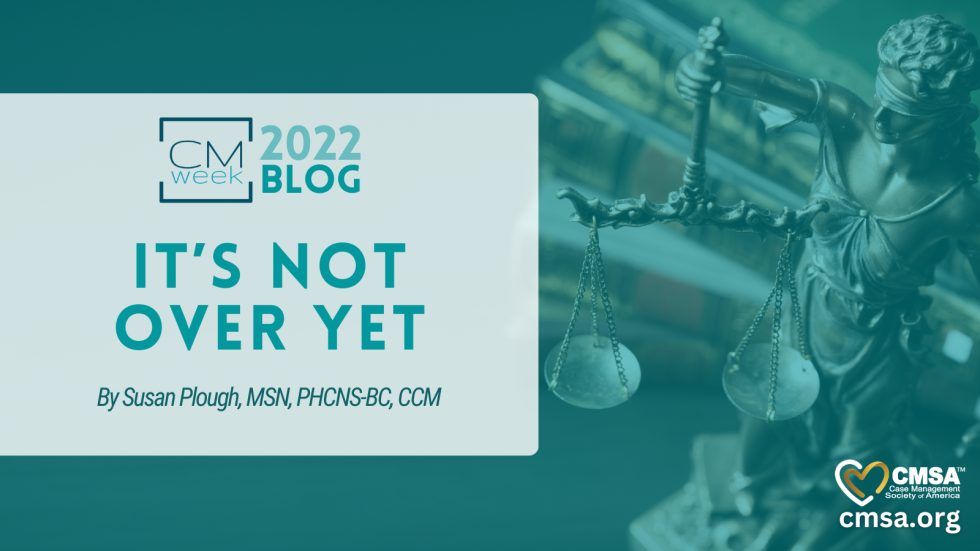One of the darkest times in nursing history was during the pandemic. Bedside nurses and case managers alike very quickly burned out from caring for the sick. Long hours, short staffing, PPE requirements and constant changes in the work environment were too much for many to handle. As a result, many nurses chose to leave the profession. Nursing schools saw a significant dip in enrollment as well, compromising the future of nursing. All this left nursing with a significant void in the profession that will likely take years to recover from.
As we begin to peel back the onion on what caused a profession that was known for its caring attitude to suddenly throw in the towel and leave patients unattended, we are forced to look at what nurses meant when they said they were tired of caring for sick people. What did that mean? That is what nurses do. Let’s look at what makes people sick.
- 50% is a person’s life and includes things like income, educational background, race, gender and social safety net.
- 25% is their health. Do they have access to healthcare? Are they connected to a healthcare system? How long must they wait for care?
- 15% is their biology such as genetics. Not much can be done about that.
- 10% is the environment that they live in such as air quality and civil infrastructure.
If we look at that from a big picture, 85% of these determinants of health are impacted by policy. Through that lens, we see that many of the issues that cause nurses and case managers to burn out are reflective of issues that need policy change.
There was a great deal of good that came out of the pandemic. The CARES ACT gave us a broad framework that addressed many aspects of the social determinants of health but only on a temporary basis. As case managers and advocates, we must continue to reach out to our legislators to ensure that legislation around things like telehealth, mental health and workforce development becomes a permanent part of our healthcare system and that our legislators know that beyond Covid, these issues will continue to exist unless they are addressed using a long-term solution.
So how can we, as case managers, influence policy?
- Know the issues. Is there legislation already in congress that addresses the issues? Does new legislation need to be introduced?
- Know the policy process. Where is the legislation at in the process? Is it in committee or has it been sent on for a vote? Is it in the House or the Senate?
- Know the policymakers. If you are not sure who your legislators are, look them up and know where they stand on the issue.
- Engage stakeholders. As case managers, we have a wide circle of acquaintances. Engage them in what you are trying to accomplish. Find out their stories. All nurses have stories that they are willing to share because our patients tell us things that they don’t tell even their family members and they certainly tell us what is wrong with our healthcare system. These are things that we can and should share with our legislators.
- Make connections. Contact your legislators. Tell your stories. Stories help legislators understand and relate to the issues better and are easy to share with other legislators.
Tell them what you would like them to do. Vote for or against a piece of legislation. Be sure to include your name, that you are a constituent and that you are a case manager.
Even though it may feel like the pandemic is ending, it’s not over yet! Now is the time to continue the work that was started during Covid. While the journey may be long, I leave you with a thought from one of our first case managers, “So never lose an opportunity of urging a practical beginning, however small, for it is wonderful how often in such matters the mustard-seed germinates and roots itself.” — Florence Nightingale
Bio: Susan has a diverse background in both Nursing and in Case Management. She has served as Executive Director of Medical Management with Physician Hospital Organizations as well as Director of Hospital Case Management for both large multi-hospital healthcare systems and smaller Case Management departments in the Midwest. She is a Board-Certified Clinical Nurse Specialist in Community Health as well as a Certified Case Manager. Currently, she is on the Faculty for Indiana University School of Nursing and does private geriatric case management for Senior 1 Care. Susan is Chairman of the National Public Policy Committee for CMSA and is a Board Member and Past President of the Central Indiana Chapter of CMSA. She has published nationally and has presented both locally and nationally on case management topics.
Get involved with CMSA Public Policy! Members receive a monthly policy update as part of their membership benefits and are invited to participate in annual "Day at the Hill" events. Email cmsa@cmsa.org to learn more.
If you would like to learn more about grassroots policy efforts by case managers, view the webinar "Real Stories of Affecting Change Through Grassroots Advocacy: A Panel Discussion" here: https://www.pathlms.com/cmsa/courses/43847


Thank you Susan for reminding us of the influence our voices can make as case managers in advocacy for important health policy! ⭐️ ✨
Thank you for the points on how case managers can influence policy. We are change makers and with our voice and our actions, we can make a difference.
Our patients and their families are depending on us as policy is developed. Make sure you stay up to date. Also VOTE to use your voice!